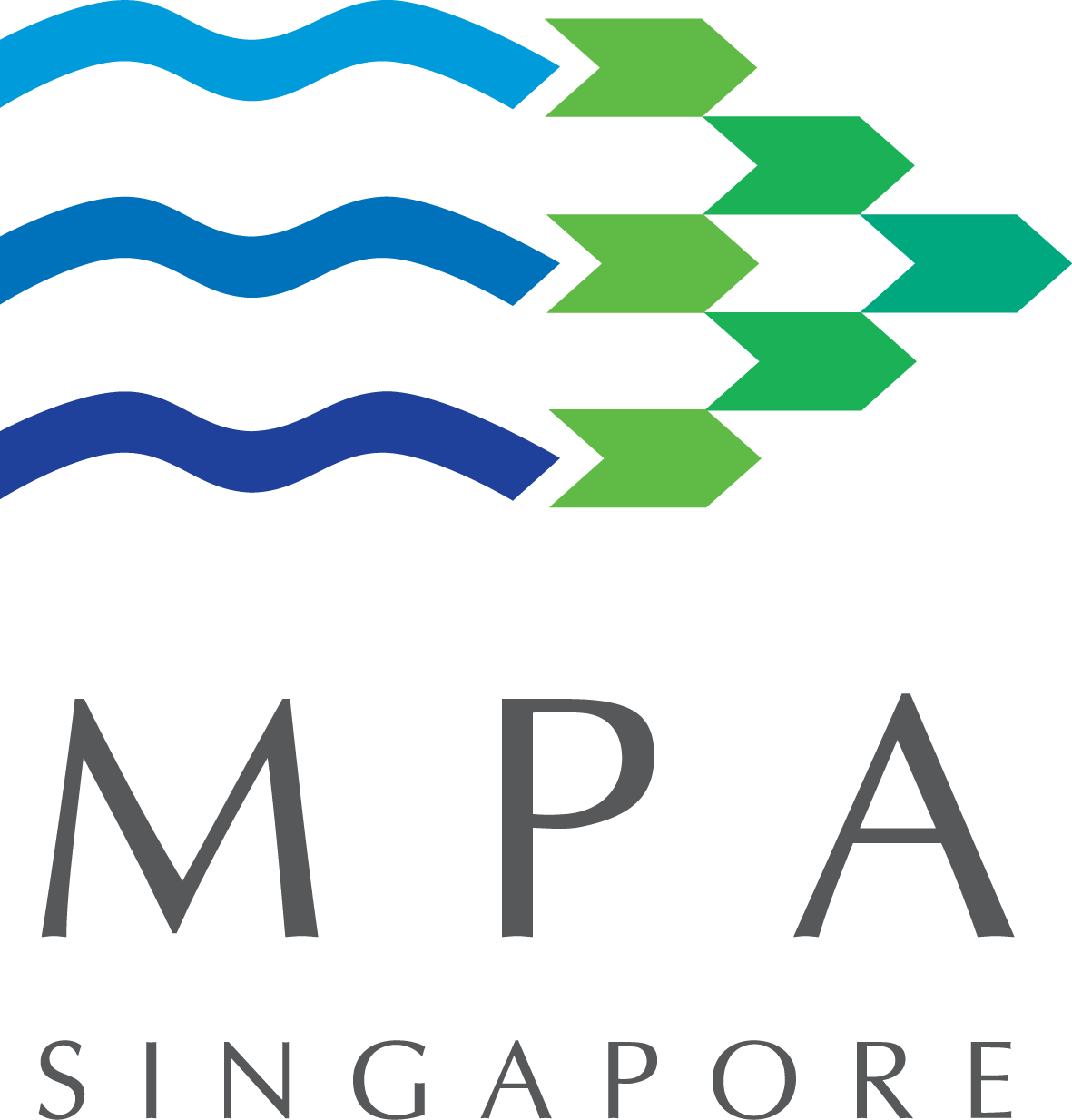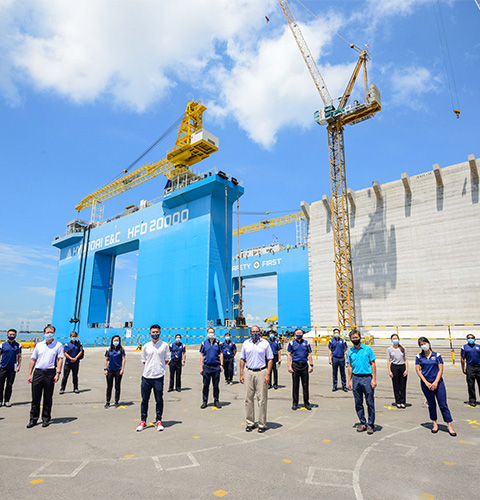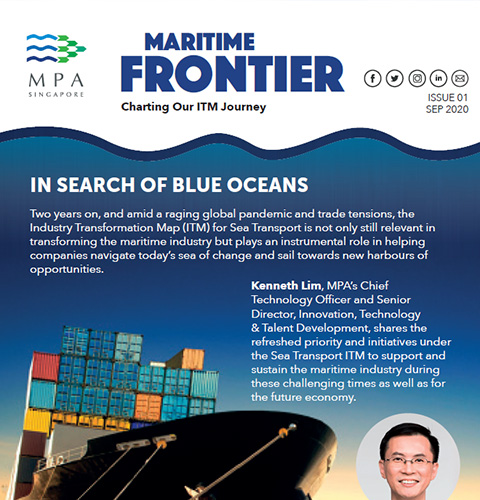Developing and Implementing the Sea Transport Industry Transformation Map
The Industry Transformation Programme was first launched at Budget 2016 to develop roadmaps for 23 industries to address issues within each sector, and deepen partnerships between the Government, companies, trade associations and chambers, and the Labour Movement. This was against a backdrop of rising challenges such as increasing competition, disruption from technological advancements as well as domestic resource constraints such as land and manpower. Each Industry Transformation Map (ITM) lays out the blueprint and key strategies needed to drive the industry forward.
Developed by MPA in partnership with the industry, unions and other government agencies, the Sea Transport ITM builds on MPA’s strategic long-term plans to develop Singapore’s next generation port and strengthen our international maritime centre (IMC).
The key strategies of the Sea Transport ITM are:
- Build up Connectivity with other Complementary Clusters – strengthen linkages between the Sea Transport sector and other adjacent sectors, such as commodity trading.
- Driving Growth through Productivity Enhancements and Innovation – Invest in new port capabilities that will capitalise on emerging technologies arising from Industry 4.0; put in place an enabling environment and infrastructure for innovation; leverage digital solutions to enhance operational efficiencies and provide greater value to its customer.
- Developing a Future-Ready Maritime Workforce – Develop new programmes to equip the maritime workforce with relevant future skills; support maritime companies’ efforts to upskill their employees in specialised technical areas, as well as soft skills such as communication and leadership.
The Sea Transport ITM was subsequently refreshed in 2022 to update our strategies to address the challenges and seize new opportunities from the COVID-19 pandemic and shifts in global supply chains. The industry can look forward to increased opportunities in physical and digital connectivity for resilience, technological advancements, and the global efforts for the green transition of the maritime sector. The “Resilience” pillar was subsequently added as a result of the Sea Transport ITM refresh.
Five Pillars of the Sea Transport ITM
Specific initiatives have been laid out under the Sea Transport ITM to catalyse innovation, drive productivity improvements, as well as enhance maritime jobs and skills. Support is also available for maritime companies to build their capabilities and networks, internationalise their operations, and enhance workforce resilience.
Pillars of the Sea Transport Industry Transformation Map
Innovation
Build a vibrant Innovative Ecosystem to Drive Competitiveness & New Growth Areas
Innovation is key to industry transformation as we develop future capabilities and solutions built on emerging technologies. To drive the next phase of growth, MPA has mapped out various initiatives. The MPA Living Lab was established to create an enabling environment for innovation and the Maritime Transformation Programme serves to deepen maritime R&D capabilities. Maritime technology enterprises and start-ups could receive support from the industry-wide acceleration programme – Port Innovation Ecosystem Reimagined @ BLOCK71 – to develop innovative solutions. Three Maritime Centres of Excellence (CoE) have also been set up within local Institutes of Higher Learning to support the Sea Transport ITM’s innovation thrust. These seek to deepen R&D Capabilities in three strategic areas: (a) Next Generation Ports; (b) Maritime Energy and Sustainable Development; and (c) Maritime Safety.
Productivity
Building a Highly Automated and Digital Maritime Environment
To ensure that Singapore stays ahead of the competition and continues to provide greater value to customers, MPA has in place initiatives to support maritime companies to improve productivity by enhancing business processes and workflow, or by developing and adopting technology solutions. Maritime companies seeking to elevate their productivity by way of enhancing business processes and workflow; or by developing and adopting technology solutions can tap on the Maritime Cluster Fund – Productivity grant. In addition, the Sea Transport Industry Digital Plan (IDP) serves as a framework to guide maritime SMEs in the adoption of maritime digital solutions. The Sea Transport IDP is a joint initiative with Infocomm Media Development Authority (IMDA), Enterprise Singapore (ESG) and SkillsFuture Singapore (SSG), as part of the SME Go Digital Programme that makes going digital simple for SMEs. It outlines the digital solutions that maritime SMEs can adopt at each stage of their growth to go digital, streamline operations, improve efficiency and drive business growth.
Jobs and Skills
Develop a Future-Ready Maritime Workforce
MPA works closely with government agencies, the industry and unions to develop a future-ready maritime workforce as we move towards a more automated and digital future. The Skills Framework for Sea Transport provides useful information on the career pathways, skills and competencies for the sector, as well as the relevant training programmes. Interested individuals and maritime companies can tap on grants under Maritime Cluster Fund – Manpower Development, to reskill and gear up for smoother workforce transition. Through the MaritimeONE Connect Office, a division of the Singapore Maritime Foundation, MPA also aims to connect students and jobseekers to maritime opportunities, and provide Singaporeans with easy access to maritime careers, education and training opportunities. In addition, the Career Conversion Programme for the Sea Transport Sector aims to lower the barrier to entry for mid-career individuals, and enable our existing maritime workforce to upskill and take on new or expanded roles through on-the-job training. The programme provides employers with salary support and has been expanded to cover new growth job roles with good long-term prospects, such as in maritime digitalisation, decarbonisation and cybersecurity.
Internationalisation
Support Maritime Companies to Grow into Global Champions
MPA works closely with government agencies, such as Enterprise Singapore, to provide the necessary support to maritime companies to groom them into global champions. The challenges encountered by maritime companies, when expanding their footprint overseas, may include access to reliable business partners, access to funds to support expansion and difficulties in acquiring relevant expertise and talent.
Resilience
Future-Proof Port's Capacity, Capabilities and Connectivity to Remain as an Essential Nexus in the Global Supply Chain
As a Global Hub Port, MPA enhances the resilience of global supply chains and bolster Singapore’s reputation as a “catch-up port”. As an International Maritime Centre, MPA strengthens the maritime cluster by increasing the value of activities here and growing a comprehensive range of maritime services. MPA also builds its workforce resilience by increasing productivity, attracting and developing talents, and supporting companies’ capability building.




.jpeg?sfvrsn=f68a3bb9_0)